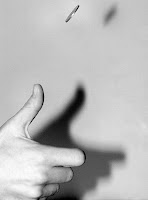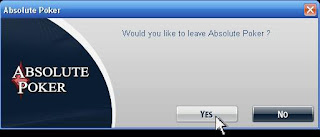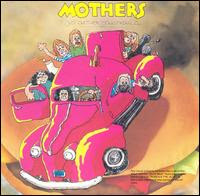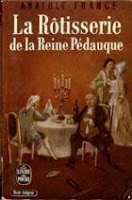Poker Still “a Game Subject to Chance” (Even for Cheaters)
 After the UIGEA was passed and discussions about the possibility of so-called “carve-outs” for poker soon commenced, we began to hear arguments intended to distinguish poker from other forms of gambling -- yet another context, if you will, for the “skill-vs.-luck” debate. The set of proposed regulations put forth by the Board of Governors of the Federal Reserve System earlier this month does not offer any specifics regarding poker (or, indeed, any attempt to define gambling as such), opting instead to leave it to the district courts, states, and “Indian lands” to make such distinctions.
After the UIGEA was passed and discussions about the possibility of so-called “carve-outs” for poker soon commenced, we began to hear arguments intended to distinguish poker from other forms of gambling -- yet another context, if you will, for the “skill-vs.-luck” debate. The set of proposed regulations put forth by the Board of Governors of the Federal Reserve System earlier this month does not offer any specifics regarding poker (or, indeed, any attempt to define gambling as such), opting instead to leave it to the district courts, states, and “Indian lands” to make such distinctions. Of course, the UIGEA itself does define a “bet or wager” as “the staking or risking by any person of something of value upon the outcome of a contest of others, a sporting event, or a game subject to chance,” which, as I’ve argued before, would necessarily include poker. I take that position for two reasons: (1) I cannot imagine members of Congress ever finding it politically-profitable to distinguish poker from other forms of gambling when drafting legislation; and (2) poker is “a game subject to chance.” Really. It is.
Like most online poker players, I’ve been fairly preoccupied of late with the Absolute Poker cheating scandal, particularly that brazen display by the player named Potripper at the 9/12/07 $100K Guarantee. One truth about poker that was certainly demonstrated there was how even cheating at poker does require at least some skill, especially if one does not want to be caught. A lot of Potripper’s play during the tournament appeared to indicate either he had little knowledge of the game beyond simple hand rankings, or perhaps did not care about whether the way he was playing might arouse any suspicions.
Take that last hand, the one where Potripper infamously calls CrazyMarco with ten-high on the turn and wins the tourney. Potripper has nearly a 4-to-1 chip advantage when the hand begins (around 760K to 215K). The blinds are only 2,250/4,500 (with a 450 ante), so CrazyMarco shouldn’t have been in any great hurry to be doubling up. Indeed, the fact that he still had plenty of chips with which to play was one reason why CrazyMarco makes his push on the turn. Having sensed weakness, he knew that to commit all of his chips in this situation would have to indicate he had a strong hand. To someone who couldn’t see his hole cards, that is.
Anyhow, Potripper has the button (and thus the small blind) and gets dealt

 . Seeing CrazyMarco has the crummy
. Seeing CrazyMarco has the crummy 
 , Potripper just completes from the SB so as to keep his opponent in the hand (I assume). CrazyMarco checks and the flop comes
, Potripper just completes from the SB so as to keep his opponent in the hand (I assume). CrazyMarco checks and the flop comes 

 . CrazyMarco checks, Potripper bets 9,000 (just shy of the size of the pot), and CrazyMarco calls in what appears to be part of his plan to bluff on the next street. The turn is the
. CrazyMarco checks, Potripper bets 9,000 (just shy of the size of the pot), and CrazyMarco calls in what appears to be part of his plan to bluff on the next street. The turn is the  and CrazyMarco again checks. This time Potripper bets 13,500 (about half the pot) and CrazyMarco check-raises all-in, pushing his remaining 200,000 into the middle. This is where Potripper makes that wild call, knowing that CrazyMarco has only three outs (the remaining deuces) to win the hand, plus a few more cards to chop.
and CrazyMarco again checks. This time Potripper bets 13,500 (about half the pot) and CrazyMarco check-raises all-in, pushing his remaining 200,000 into the middle. This is where Potripper makes that wild call, knowing that CrazyMarco has only three outs (the remaining deuces) to win the hand, plus a few more cards to chop.Obviously a more skilled (and/or more self-aware) player would have thought twice about making such a call, since doing so meant showing down his lousy ten-high and thus, perhaps, raising some suspicions about whether or not he might be cheating. But does the hand prove once and for all that poker is, in fact, a game based on skill (and not chance)?
Of course not. In fact, the whole episode clarifies even more vividly how poker is, in fact, “a game subject to chance.” A deuce could have come on the river, and CrazyMarco could still have won the hand. In fact, it is conceivable (though unlikely) that CrazyMarco could still have won the tournament, even though Potripper could see his hole cards. That’s because luck is always going to be a factor in poker.
For me this scenario recalls Annie Duke’s argument that poker is a skill-based game because “you can purposely lose at poker if you choose” (Wall Street Journal, “Harvard Ponders Just What It Takes to Excel at Poker,” 5/3/07). Duke is correct to point out that you cannot purposely lose at chance-based games like roulette or Keno, thereby distinguishing poker somewhat from those games in which skill is a non-factor. However, the observation does not prove that poker is not a “game subject to chance.” (I’m not sure if that was her point, anyway.)
One could argue that all of Potripper’s opponents were, in a way, “purposely” trying to lose to him during that 9/12/07 tourney, although none of them were aware of it at the time. Knowing their hole cards, all of Potripper’s decisions were absolutely “optimal” (pun intended), thus making all of his opponent’s moves the wrong ones. The only purposefully-self-destructive move his opponents didn’t make against him was to fold after putting all of their chips in the middle. And still Potripper could have lost.
Have been hearing and reading about Barry Greenstein’s optimistic report from last week’s PPA fly-in to lobby Congress. Greenstein is saying he firmly believes “it will be less than 6 months before Congress realizes that they need to pass legislation contrary” to the UIGEA.
A nice thought, that. I still cannot imagine, though, Congress ever passing any sort of law that singles out poker as different from other forms of gambling (like Wexler’s “Skill Games Protection Act”). Much more likely to see something passed like Frank’s “Internet Gambling Regulation and Enforcement Act” -- which has gathered 40 co-signers, I believe -- a bill that does not give poker any special mention.
Even that is highly subject to chance, though.
Labels: *the rumble












 . Got called by big slick, didn’t improve, and the day swiftly ended with a whimper.
. Got called by big slick, didn’t improve, and the day swiftly ended with a whimper.


 . With the blinds 150/300, an early position player (who had me covered) raised to 900 and I reraised to 2,200. The EP player called, then when the flop came
. With the blinds 150/300, an early position player (who had me covered) raised to 900 and I reraised to 2,200. The EP player called, then when the flop came 

 . He had
. He had 
 , and while a four flopped so did an ace. By the time “Valerie” was fading out, I had cracked the 20,000-chip mark.
, and while a four flopped so did an ace. By the time “Valerie” was fading out, I had cracked the 20,000-chip mark. 

 from the BB. I had 30,550 when the hand began. Blinds were 400/800. A player with 9,700 or so had raised to 2,400 from early position, then was reraised all-in by a player with about 11,700. It folded around to me and I went ahead and called it, figuring I stood to triple (nearly) my investment if I took it down. Unsurprisingly, one of my opponents also had big slick -- suited, in fact -- while the other had a pair of eights. The other
from the BB. I had 30,550 when the hand began. Blinds were 400/800. A player with 9,700 or so had raised to 2,400 from early position, then was reraised all-in by a player with about 11,700. It folded around to me and I went ahead and called it, figuring I stood to triple (nearly) my investment if I took it down. Unsurprisingly, one of my opponents also had big slick -- suited, in fact -- while the other had a pair of eights. The other  . A few seconds later and I’m up to 41,540, about 130th or so out of the 400-plus remaining players.
. A few seconds later and I’m up to 41,540, about 130th or so out of the 400-plus remaining players.







 . Two early position players called, then JoelCairo raised it. The player to JoelCairo’s left, Gutman, cold-called the two bets, and BrigidS also called. A decent scenario for my small suited connectors. I also call the two bets, the SB folds, and the BB and early position players all call as well. Seven players altogether to see the flop. The pot is $15.
. Two early position players called, then JoelCairo raised it. The player to JoelCairo’s left, Gutman, cold-called the two bets, and BrigidS also called. A decent scenario for my small suited connectors. I also call the two bets, the SB folds, and the BB and early position players all call as well. Seven players altogether to see the flop. The pot is $15.
 -- a straight flush draw for me. The first player to act bets and gets called, then JoelCairo raises it to two bucks. Gutman calls, then BrigidS three bets. I hesitate for a moment, then go ahead and cap the betting from the button. I figure I might drive out at least one or two of those early players. I’m also thinking since I’m going to call the fourth bet anyhow, I might as well raise to obscure the fact I’ve got nothing as yet.
-- a straight flush draw for me. The first player to act bets and gets called, then JoelCairo raises it to two bucks. Gutman calls, then BrigidS three bets. I hesitate for a moment, then go ahead and cap the betting from the button. I figure I might drive out at least one or two of those early players. I’m also thinking since I’m going to call the fourth bet anyhow, I might as well raise to obscure the fact I’ve got nothing as yet. -- improves my hand, technically speaking (I now have a pair). But I know I’m still drawing. JoelCairo surprisingly checks, as does Gutman. BrigidS bets out, I call, and JoelCairo check-raises us. Gutman cold-calls the two big bets, then BrigidS three-bets it. I’m going nowhere, though capping seems a bit foolhardy this time so I call the three bets. JoelCairo just calls, too, as does Gutman. There are still four of us in the hand. The pot is up to a whopping $57, or 28.5 big bets.
-- improves my hand, technically speaking (I now have a pair). But I know I’m still drawing. JoelCairo surprisingly checks, as does Gutman. BrigidS bets out, I call, and JoelCairo check-raises us. Gutman cold-calls the two big bets, then BrigidS three-bets it. I’m going nowhere, though capping seems a bit foolhardy this time so I call the three bets. JoelCairo just calls, too, as does Gutman. There are still four of us in the hand. The pot is up to a whopping $57, or 28.5 big bets. , giving me my straight, and when it checks around to me I’m pretty sure I’m golden. JoelCairo calls, and the other two players both fold! JoelCairo mucks his pocket rockets, and I scoop $59.50 all told (after a buck is taken for the rake).
, giving me my straight, and when it checks around to me I’m pretty sure I’m golden. JoelCairo calls, and the other two players both fold! JoelCairo mucks his pocket rockets, and I scoop $59.50 all told (after a buck is taken for the rake).












